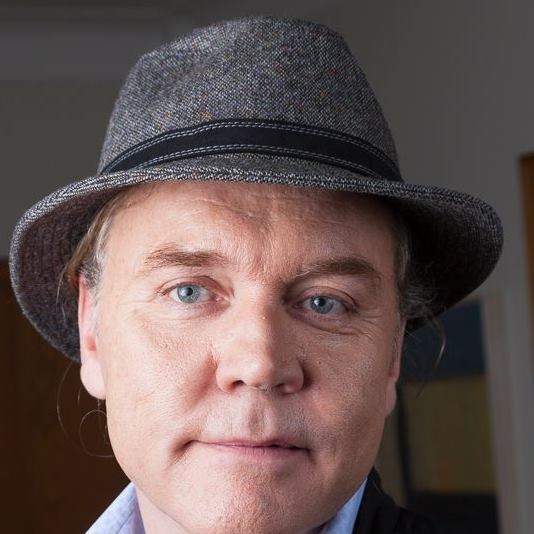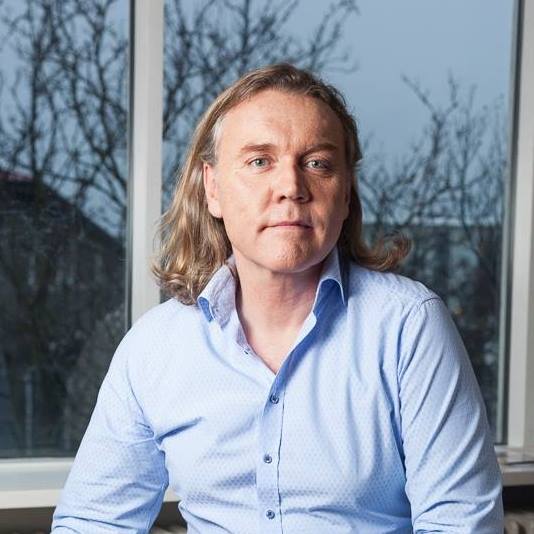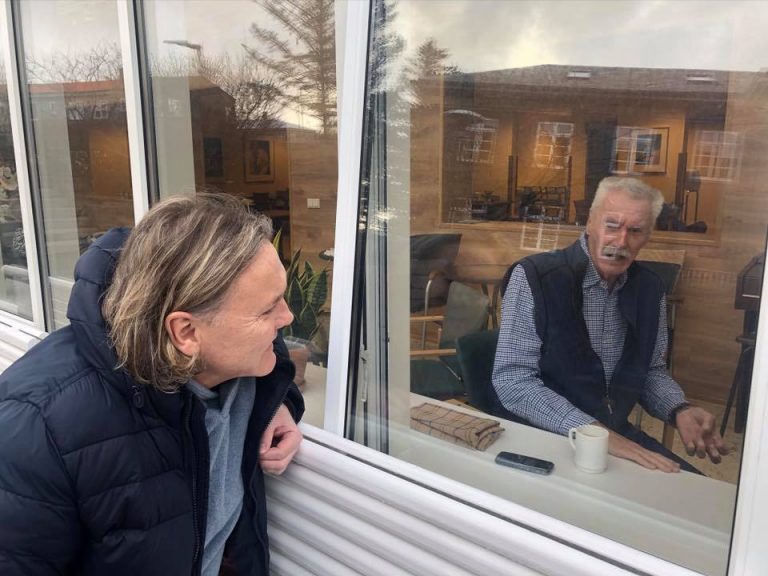Across Iceland, the COVID-19 pandemic has forced people to stay home and practice physical distancing to prevent the spread of the virus. For the queer community, this means that important community networks and connections have had to adapt to this new reality. GayIceland speaks with queer Icelanders about how they are coping with the isolation.

Einar Þór Jónsson is the executive director of HIV Iceland and has been living with HIV for nearly 35 years. Now he’s living through another pandemic that’s dramatically changed his life.
Einar’s husband, who has also been living with HIV for about three decades, has Alzheimer’s disease and is living in a nursing home. “He doesn’t understand where he is and he’s very confused,” Einar says about his husband Stig. “Normally I go there every day, I take care of him, we talk and we spend some time together. But just a few weeks back, without any notice, they closed all the nursing homes and all institutions so you couldn’t visit and see your people.”
“This is a very scary thing that could change our civilization a lot.”
“He is so ill that he can’t handle any equipment. He can’t call me or answer the phone. But the people there help him with that.” Einar says one of the women working at the nursing home suggested that he and Stig call each other from opposite sides of a glass wall in the building. “He was talking on his phone and I was talking on my phone and we could see each other. That was very nice and I have been doing that now for some weeks.”
Although he understands why physical distancing is important to stop the spread of COVID-19, and he encourages everyone to listen to public health officials, Einar is critical of the way the situation is being handled. For example, he says he wishes it would be possible for people to visit their family members as long as they follow certain rules. “There are so many ways that things could be done,” he says. “I see it more like discrimination somehow, that people should have some choice about how they would like to have things.”

The way Einar views this pandemic is profoundly shaped by his experiences living through the HIV/AIDS epidemic in the 1990s. He says many people in Iceland’s HIV community are worried about COVID-19, especially because there is so little information about how the virus affects people who are HIV positive. However, what Einar says he is most worried about is the fear that COVID-19 is causing.
“This fear is going to affect us all. All these people who are so afraid that they don’t really dare go out, or if they go to the grocery store they are so afraid,” he says. “People were so fearful about AIDS. They discriminated against people with that virus and they changed the laws. There were travel restrictions for HIV positive people. That is what I feel is very dangerous, that they can do whatever they like because of this.”
See also: Queer Icelanders cope with Covid-19: “You have to ask for help”
Einar is also the chairperson of Iceland’s national mental health association, and he worries about how this pandemic will affect people’s mental health in the long-term. “This is a very scary thing that could change our civilization a lot,” he says. “It will remain like this for many years, that people are afraid of being infected by something.”
“This is unbelievable. Never in my dreams could I have imagined just one month ago that we’d be in this situation.”
Although Einar says he is not personally worried about being infected, he says the isolation is getting to him. “For me this is a challenge that I am not really seeing people. There are no meetings, nobody comes for a visit, and all the coffee-shops and bars are closed. This gets on my nerves, because I love people and I love to socialize and sit with people and go to parties.”
“This is really hard on people who are not allowed to see their people who are really sick and who are dying. And then it is forbidden to have a funeral as well. You are not allowed to die, and if you die you don’t have a funeral,” he says. “This is unbelievable. Never in my dreams could I have imagined just one month ago that we’d be in this situation.”
See also: Coping with COVID-19: “Waiting for news from home is terrible”


